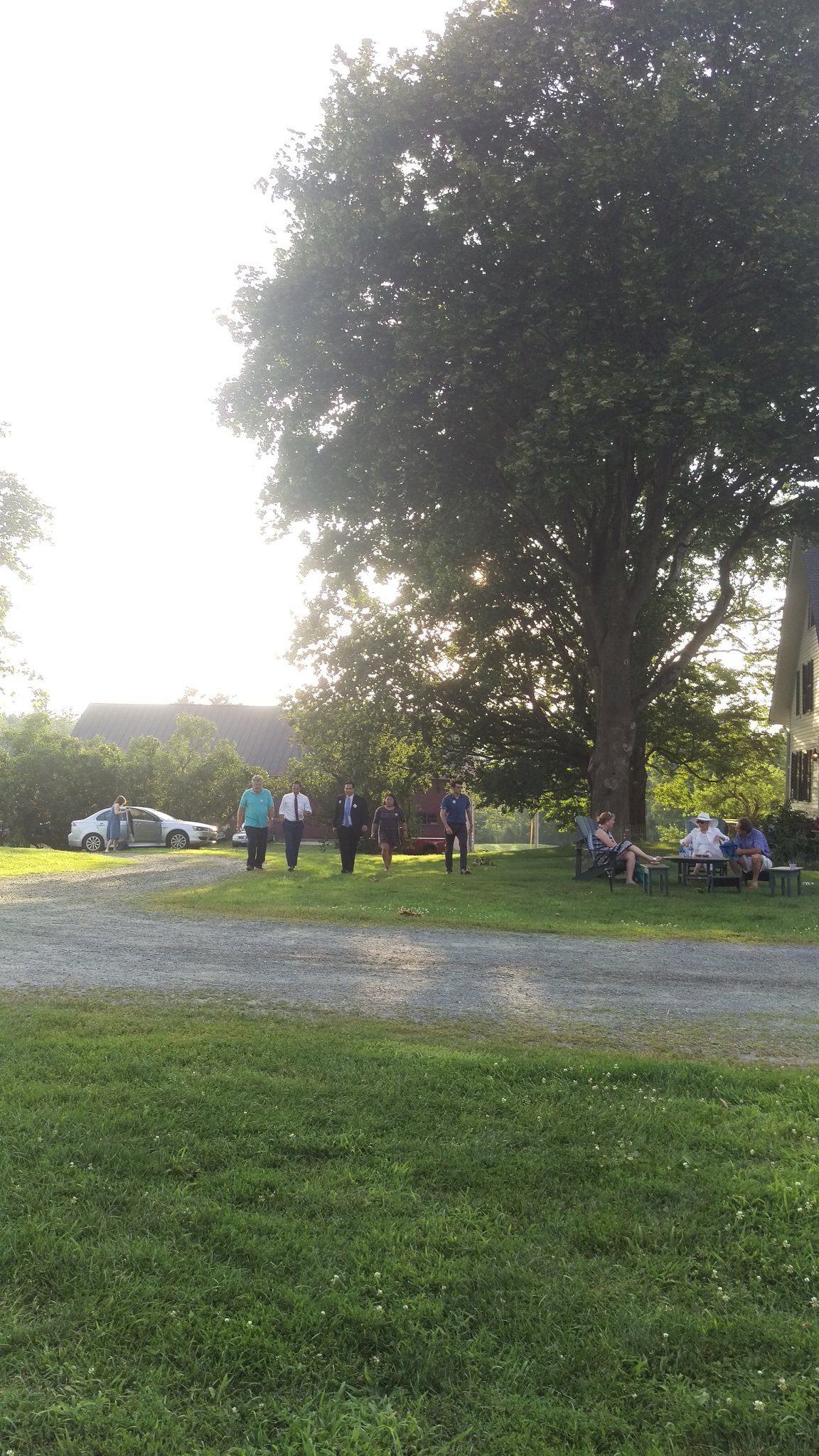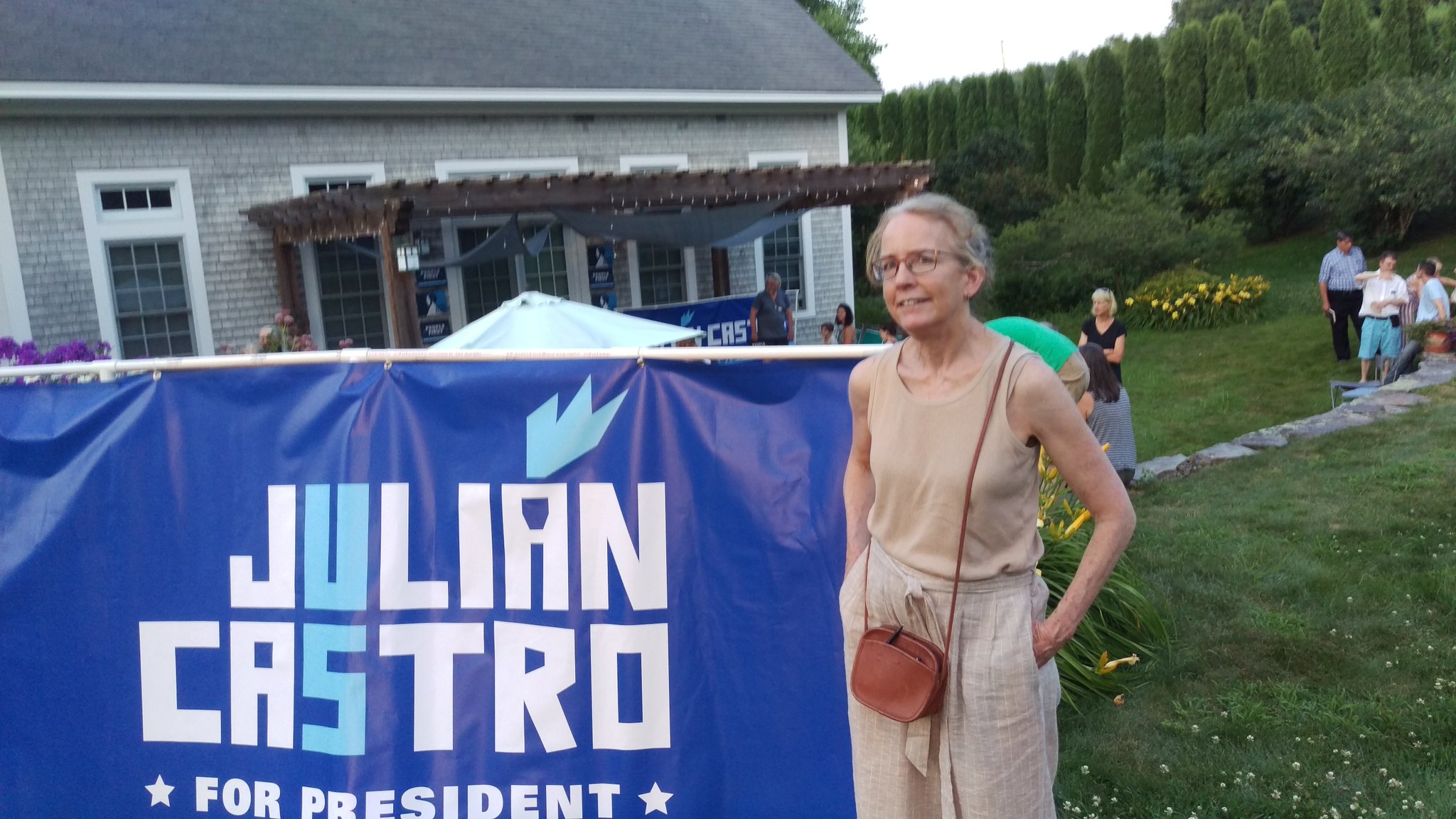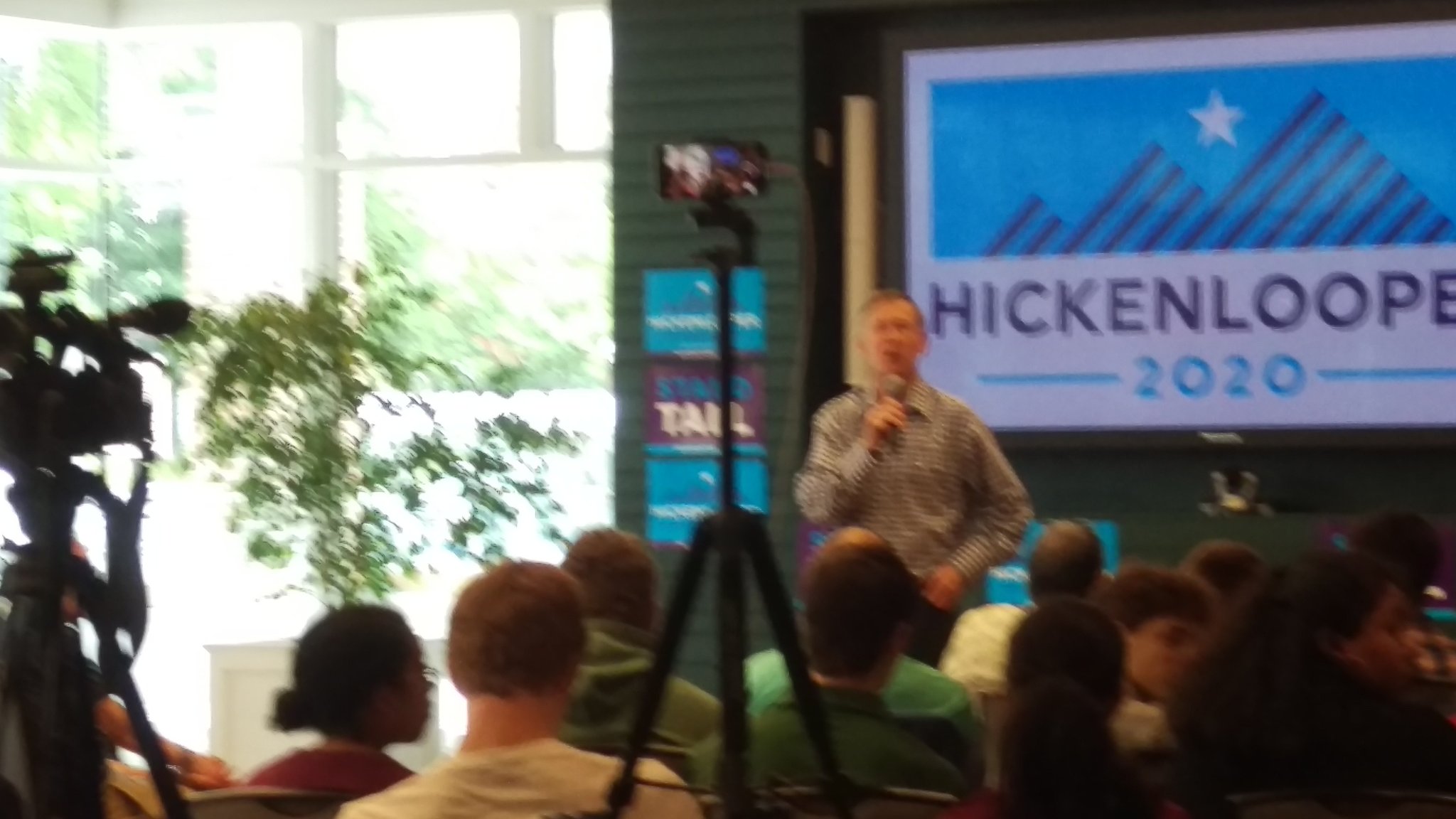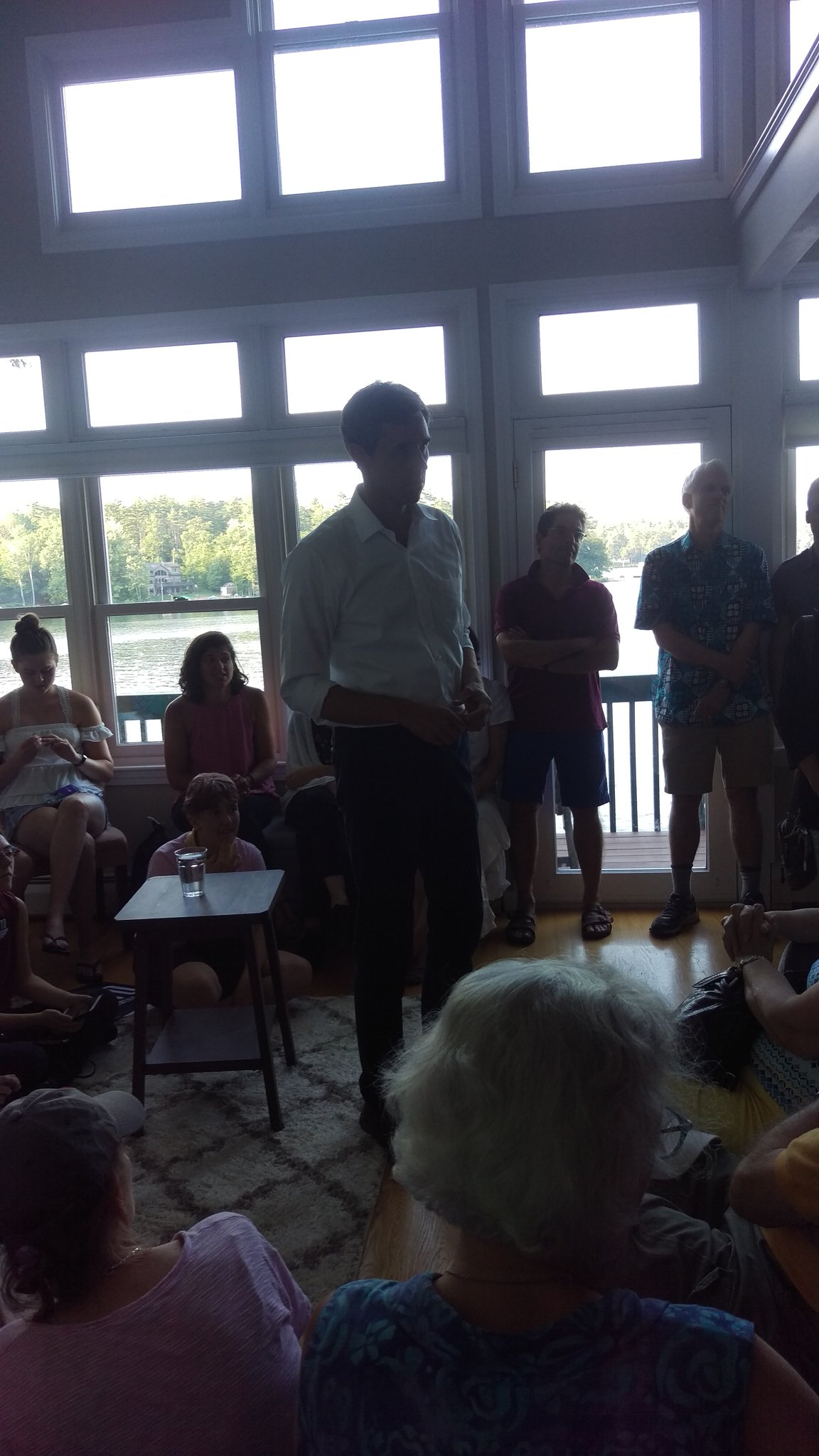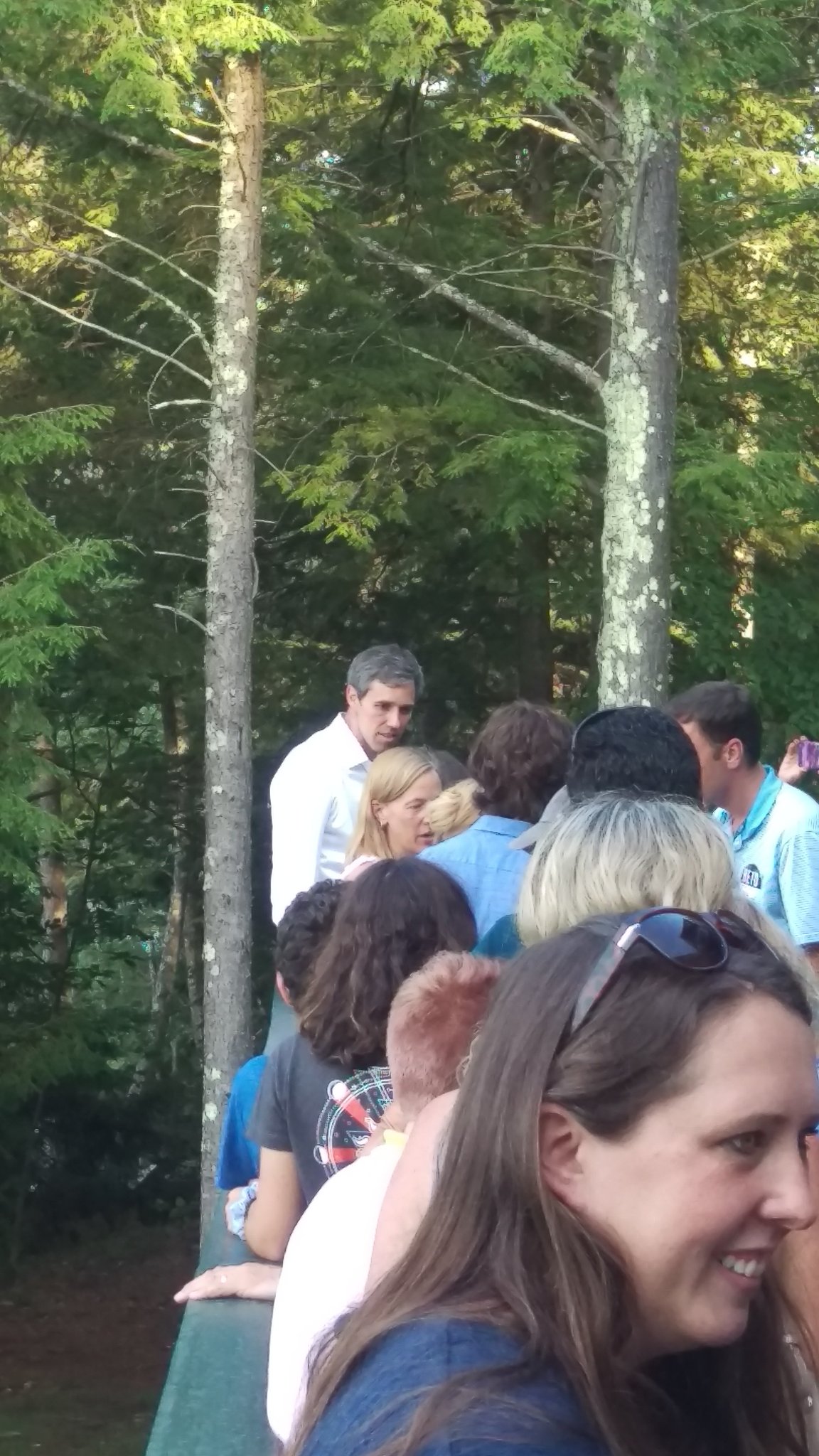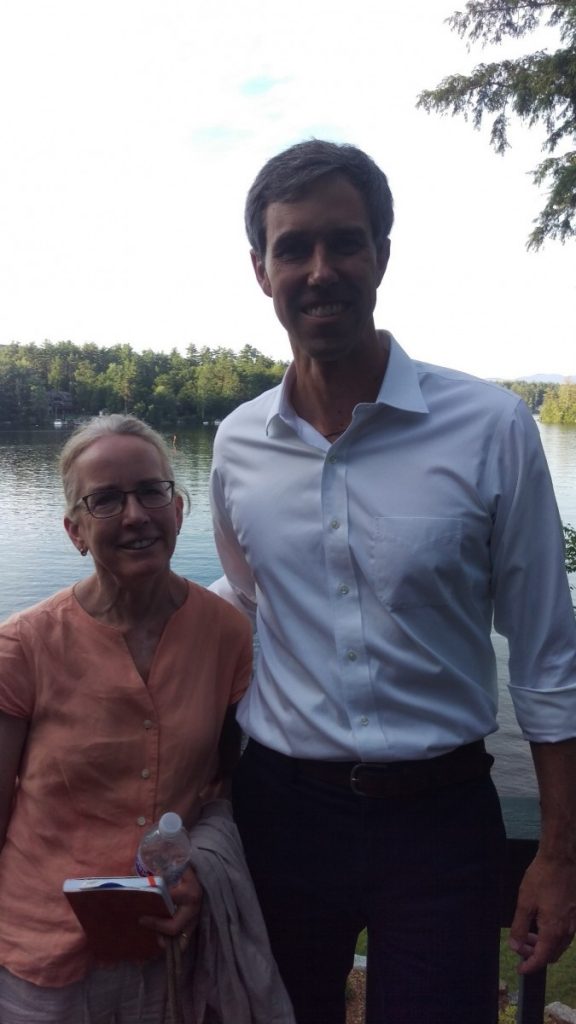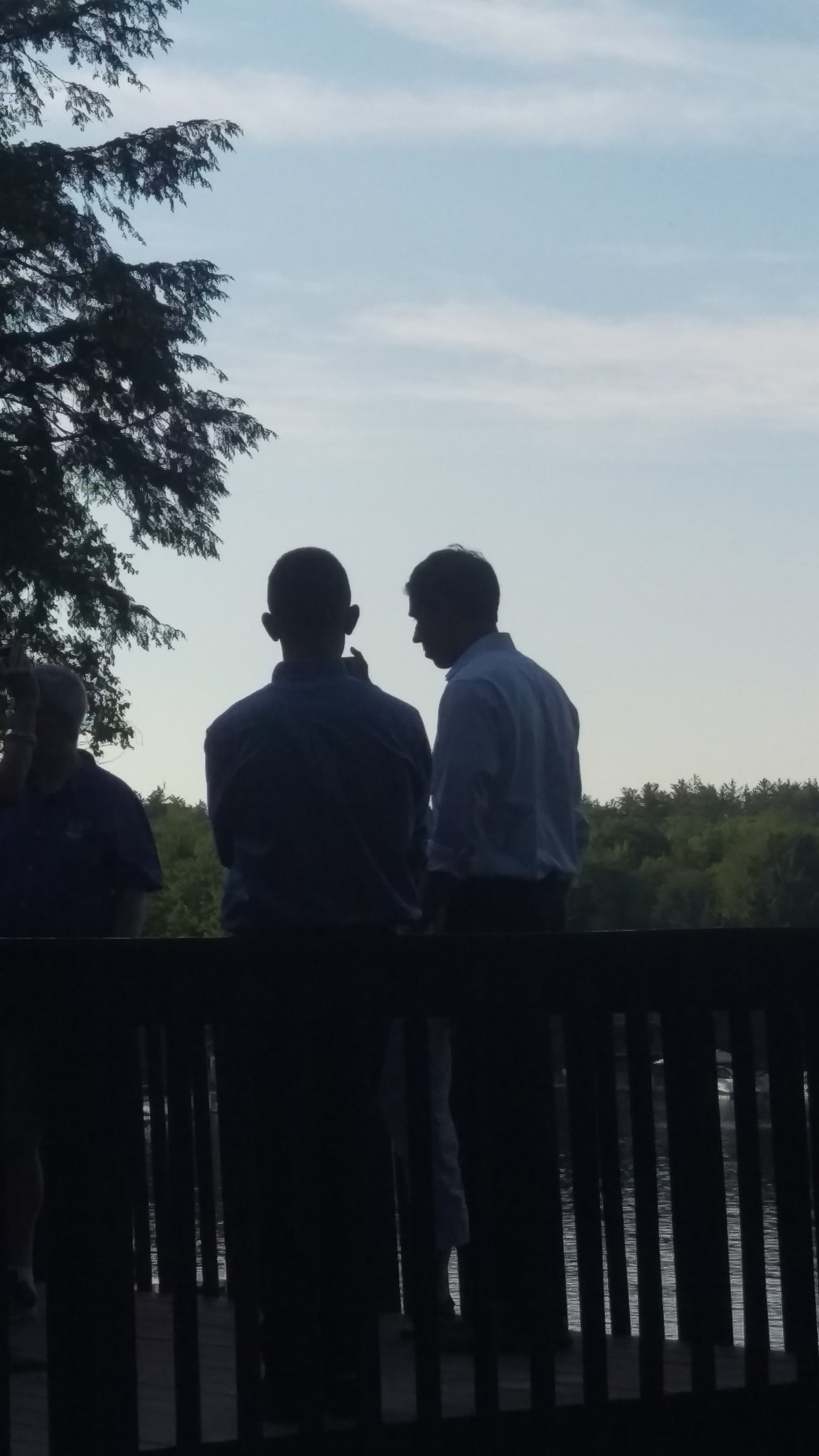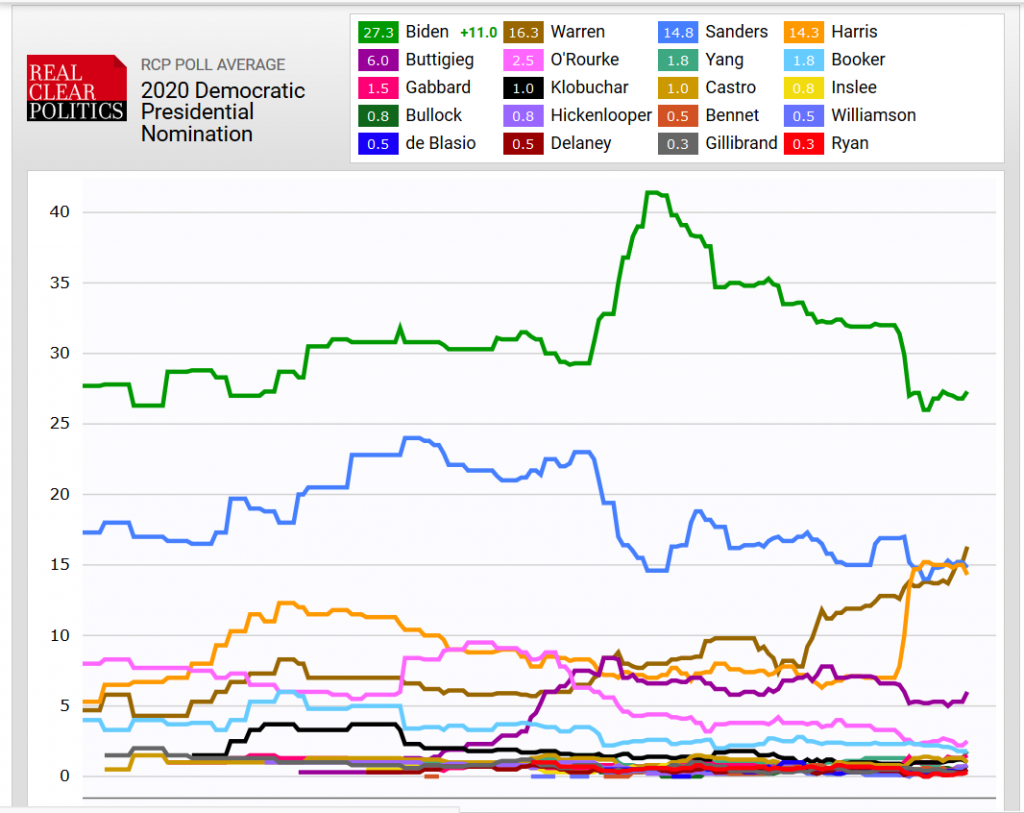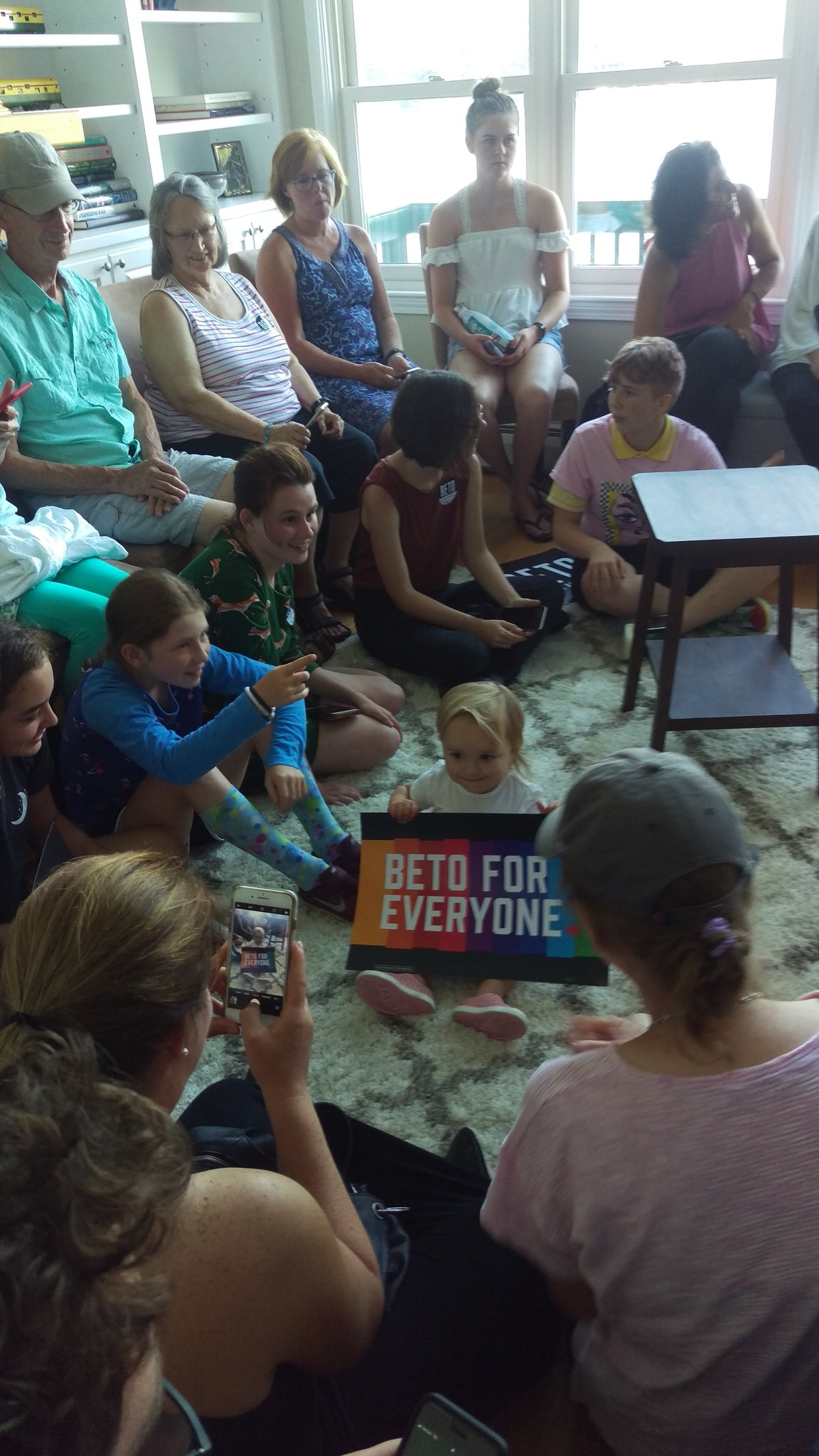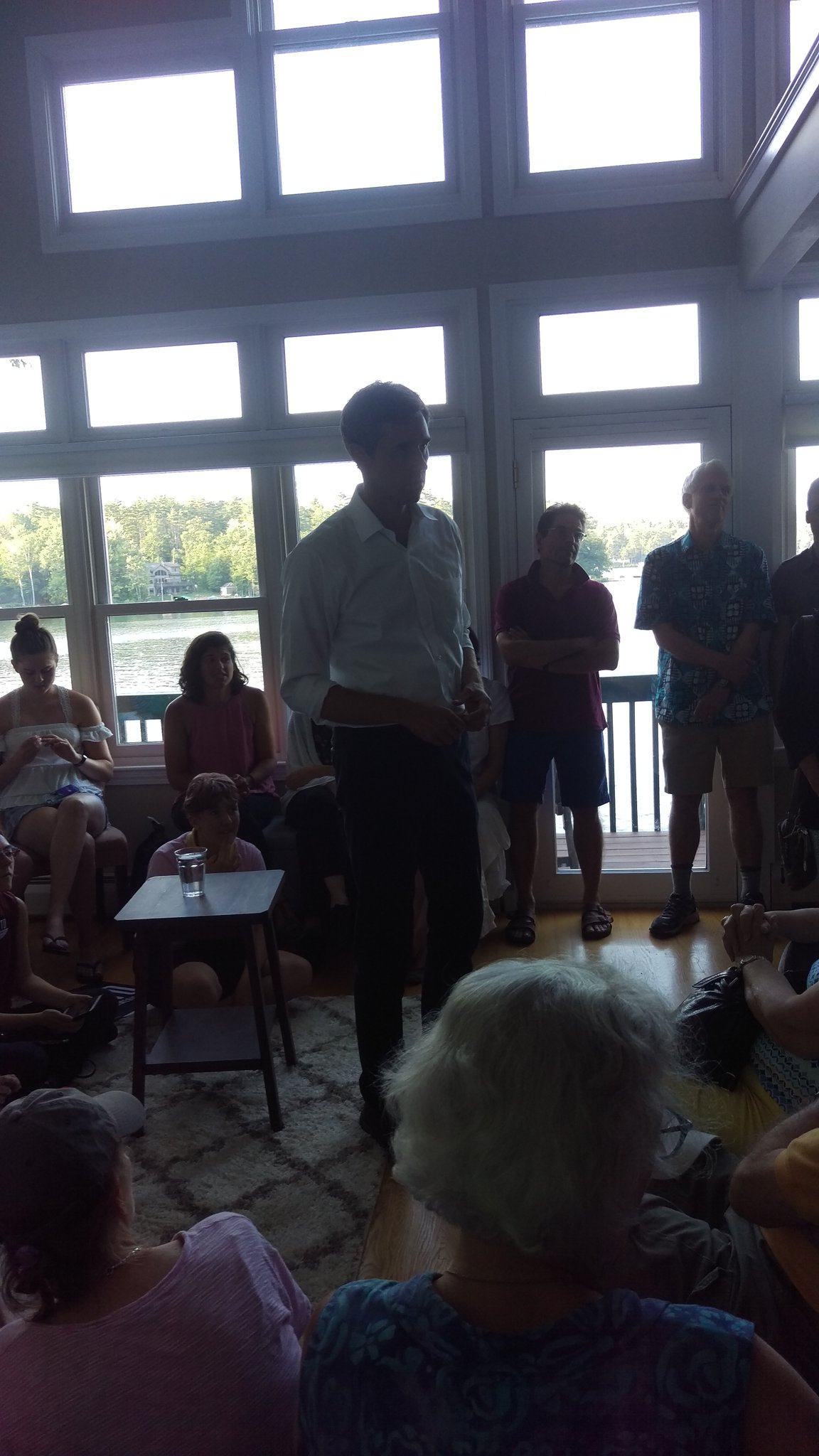The Saturday before last, Minnesota Senator Amy Klobuchar took her presidential campaign to New Hampshire, and we were there. Here’s our report.
A bit more than six months ago, Minnesota Senator Amy Klobuchar stood in a snowstorm along the Mississippi River to formally announced she was seeking the Democratic nomination for the presidency.
At the time, I pegged her as my dark horse candidate to win the nomination. While certainly not the favorite at the outset – Biden and Sanders occupied that position – I thought she was well positioned to pick up support if any of the top-tier candidates – particularly Biden – stumbled. I based that assessment on a number of factors: her ideological position as a relative political centrist within the Democrat Party (she’s currently the 33rd most liberal Senator based on her voting record in the current Congress); her geographic basis of support as a Senator from the Midwest; her track record in winning elections; and her gender, which I thought might be an added attraction among Democrat voters.
To date, however, she has struggled to gain traction in the polls, both nationally and in in key early states, including Iowa, which borders her home state, and where she hopes to gain momentum coming out of the gate next February. Nationally, she’s polling at about 1.3% in the RCP aggregate polls (see below) and isn’t doing much better in either Iowa (4%), or New Hampshire (1.3%).

She came to Cornish, New Hampshire (the site of a Castro event the night before) on a very hot Saturday afternoon. Due to the heat, the event had been moved into a shady area under overhanging trees, but it was still quite warm (so warm that at one point my phone died from heat stroke during my live tweeting of the event.) Fortunately, Klobuchar’s staff came prepared with plenty of water, and later popsicles too.

She arrived shortly after 2 p.m., worked the crowd and then stepped up on the house steps and, after some microphone issues, launched into her campaign spiel, starting with a humorous story about heat and standing in the sun during a visit to an Oklahoma military base. (“They put the soldiers in the shade, and the politicians stood in the sun.”)

As it turned out, she used humor in her talk quite effectively, and to a far greater degree than any other candidate we’ve seen so far. (Klobuchar’s story regarding her hairdresser’s horror when Klobuchar gave her announcement speech in a snowstorm was worth the price of admission.)
After referencing the first Democrat debate, and how she was standing alongside five men over 6 ‘ 2 “ tall (and noting as an aside that unlike Tulsi Gabbard she didn’t use an elevated platform!) , she launched into her stump speech, which was a combination of biography, condemnation of Trump’s presidency, an overview of her policies, and an argument in favor of her electability.
One thing she did quite well – much more effectively than did Castro the night before – was to orient her campaign speech to her New Hampshire audience. She mentioned how informed N.H. voters are, citing as an example the question she received from an 11-year old (Quinn from Peterborough!) at an earlier N.H. rally asking whether Mueller should testify before Congress, and if so in which chamber, and before which committee. Later, she referenced N.H. senators Maggie Hassan and Jean Shaheen as evidence that New Hampshire voters prefer candidates who can work across the political aisle to get things done. She would return to this theme of bipartisanship and legislative accomplishment later in the talk.
She blasted Trump’s recent statements on “sending them back home” and noted that the biggest Somali refugee population in the United States is in her home state. Later she returned to the issue, noting – to applause – that “Immigrants are not a threat to America. They are America.” She described immigration as an “economic issue”, rather than a national security one, and she called for passage of legislation similar to the 2013 comprehensive immigration act that she supported, and which passed the Senate before dying in the House.
Regarding climate change, she promised if elected to rejoin the International Climate Change Agreement and restore the Obama-era Clean Power regulations. She argued that what was missing from the climate discussion were “voices from the heartland” who could testify regarding climate-change-related events such as tornadoes and wildfires. She discussed visiting a woman living along the Mississippi river whose house was submerged in flooding, something the woman said she had never experienced before.
She then transitioned to discuss the need for new infrastructure spending, noting that her announcement speech took place a mile from where a bridge collapsed, and citing Iceland’s progress in wiring the entire country for broadband; the need for workforce training (here she made a plea to hire more retired persons); and her support for election reform, including automatic registration for 18-year-olds and greater use of paper ballots.
Regarding health care, she touted bipartisan legislation she sponsored along with Shaheen designed to stabilize health insurance markets and lower premiums through easier eligibility for cost-sharing and greater use of reinsurance programs. Like Biden, Hickenlooper, Klobuchar and O’Rourke, she cautioned against creating a Medicare-for-All program at the expense of private insurance, and instead supports the option to buy-in to expanded Medicare and Medicaid programs, while retaining private health insurance for now.
Klobuchar finished by again emphasizing her electability, noting that she has won every race, every time, every place, that she has ever entered dating back to grade school, when her campaign slogan was “All The Way With Amy K!” (“I’ve since dropped that slogan”) and promised to govern with integrity.
Klobuchar then opened it up for questions. The first questioner asked her whether she had the “grit” to take on and defeat Trump. “That’s what this process is about,” she replied, citing her multiple appearances on Sunday talk shows, town halls and on the debate stage. She noted that based on her unique donor contributions and polling that she will likely be one of the 10-12 candidates who survive the early winnowing to earn eligibility to the September debate platform.
A second question asked her policy on no first use of nuclear weapons and her views regarding the nation’s nuclear weapons force posture more generally. She noted that she is still studying the issue but used the question to denounce the Trump administration’s withdrawal from the Iran nuclear deal, saying “the president calls himself a dealmaker, but we are less safe now.”
A third question solicited her views regarding the Palestinian-Israeli conflict. She responded that she had met with Palestinian groups both during her trips to Israel and back in Minnesota, and that she backed a two-state solution. However, she would not support legislation to cut off aid to Israel, and reminded the audience that Israel is a “beacon of democracy” in the region, and important to the U.S. As president, she would work to jumpstart negotiations to a peaceful settlement, but she said it was important to emphasize “the good that Israel has done.”
She was then asked about the impact of the Republicans stacking the courts, and whether she would agree to former Attorney General Eric Holder’s proposal to expand the Supreme Court. She acknowledged that she was open to the idea, although she noted it was unlikely to happen. She said as president she would nominate judges who “follow the law” and here she referenced her highly-praised questioning of Brett Kavanaugh during his Supreme Court nomination hearings. She promised to place Roe v. Wade on a statutory basis, noting that 77% of American do not want to see the court ruling reversed.
A final question returned to the problem of defeating Trump, and it was here that I thought Klobuchar made perhaps her most insightful comments of the whole event. “Trump is a bully – how will you combat him?” she was asked. She began by noting that the person who has handled him most effectively so far is a woman – Nancy Pelosi. She acknowledged that Hillary Clinton was an effective debater. However, she said to defeat Trump you must emphasize what unites us, not what divides us. She pointed out that Trump likes to use humor – “You just don’t think he’s funny!” But humor, she said, can be a useful tool against him. She recounted how Trump mocked her as “snow woman” in response to her giving her announcement speech that focused on combating “global warming” while standing in a snowstorm. Rather than get defensive, she said she responded with her own humorous barb, tweeting him ask whether his hair would survive in such a storm. (The actual tweet read: “Science is on my side, @realDonaldTrump. Looking forward to debating you about climate change (and many other issues). And I wonder how your hair would fare in a blizzard?”
She said poking fun at him is not meant to imply the stakes in this election aren’t serious. “Take your work seriously, but not yourself,” she summarized.
Klobuchar ended the event by reiterating the need to mobilize, and how that would be the key to taking back the White House no matter who won the Democratic nomination. She reminded listeners how the day after Trump’s election 6,000 women signed up to run for office. She hailed the Parkland students for mobilizing on behalf of stronger gun control laws, and the people who marched on behalf of climate science. She also reminded them that the Republican official in New Jersey who asked if Women’s March protesters will get home ‘in time for them to cook dinner’ was defeated by a female Democratic candidate who ran against him after seeing his statement. All these are examples of the change that can occur if people mobilize. With that, she exhorted, “Thank you, and let’s go win!”
After her remarks, and despite the oppressive heat, she stood in line to take selfies. Here she is with a well-known local politician.

Klobuchar is an impressive candidate, very personable, well informed and, as noted above, not above poking fun at herself to make a broader point. She exhibited an easy rapport with her audience and there was no sign of the Klobuchar who has been criticized for allegedly harsh treatment of her staff. (Full disclosure – in my brief conversation with her after the event she discussed majoring in political science at Yale and rattled off a who’s who of significant political science professors she had studied with, including Dahl, Rosenstone, and Lindblom. So, I may be a bit biased!) Clearly, she is positioning herself as a midwestern pragmatist competing against a group of more liberal coastal candidates, and she is playing up her record of accomplishment (she has passed more bills than any of her Democrat rivals) compared to that of her more progressive rivals. She also touts her electability, reminding voters that in 2018 she won 42 Minnesota counties that voted for Trump two years earlier.
While that profile may be appealing to voters in the general election, however, the unknown question is whether she will be viewed as too moderate in a Democrat Party that has shifted substantially left in recent years. There is also some question regarding how well she will do among the approximately 25% of Democratic nomination voters who are African-American, as well as other racial minorities. Tomorrow’s debate may give Klobuchar her best opportunity to date to address those issues. Already, however, the media is describing the event as a showdown between Elizabeth Warren and Bernie Sanders; Klobuchar is typically relegated to an afterthought in the media coverage, if that. Given the prevailing media narrative, and how speakering time was allotted in the first debate, she is going to need a big performance in order to change her coverage and break into the top tier of candidates. We’ll see if she can deliver. Stay tuned.

